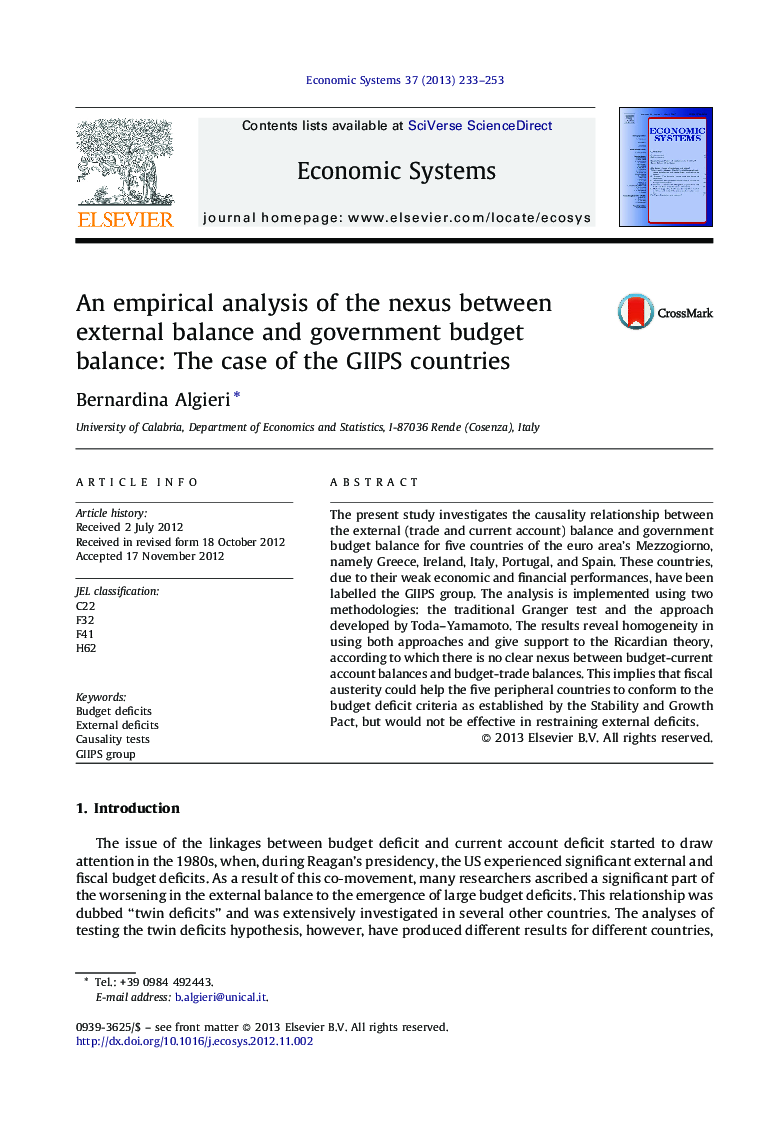| کد مقاله | کد نشریه | سال انتشار | مقاله انگلیسی | نسخه تمام متن |
|---|---|---|---|---|
| 5056432 | 1371633 | 2013 | 21 صفحه PDF | دانلود رایگان |

The present study investigates the causality relationship between the external (trade and current account) balance and government budget balance for five countries of the euro area's Mezzogiorno, namely Greece, Ireland, Italy, Portugal, and Spain. These countries, due to their weak economic and financial performances, have been labelled the GIIPS group. The analysis is implemented using two methodologies: the traditional Granger test and the approach developed by Toda-Yamamoto. The results reveal homogeneity in using both approaches and give support to the Ricardian theory, according to which there is no clear nexus between budget-current account balances and budget-trade balances. This implies that fiscal austerity could help the five peripheral countries to conform to the budget deficit criteria as established by the Stability and Growth Pact, but would not be effective in restraining external deficits.
⺠Causal relationships between budget balance and external balance are examined. ⺠The analysis focuses on Portugal, Ireland, Italy, Greece, and Spain. ⺠The traditional Granger causality test and the Toda Yamamoto test are implemented. ⺠The results give support to the Ricardian hypothesis. ⺠The findings remain the same, regardless of which causality technique is adopted.
Journal: Economic Systems - Volume 37, Issue 2, June 2013, Pages 233-253